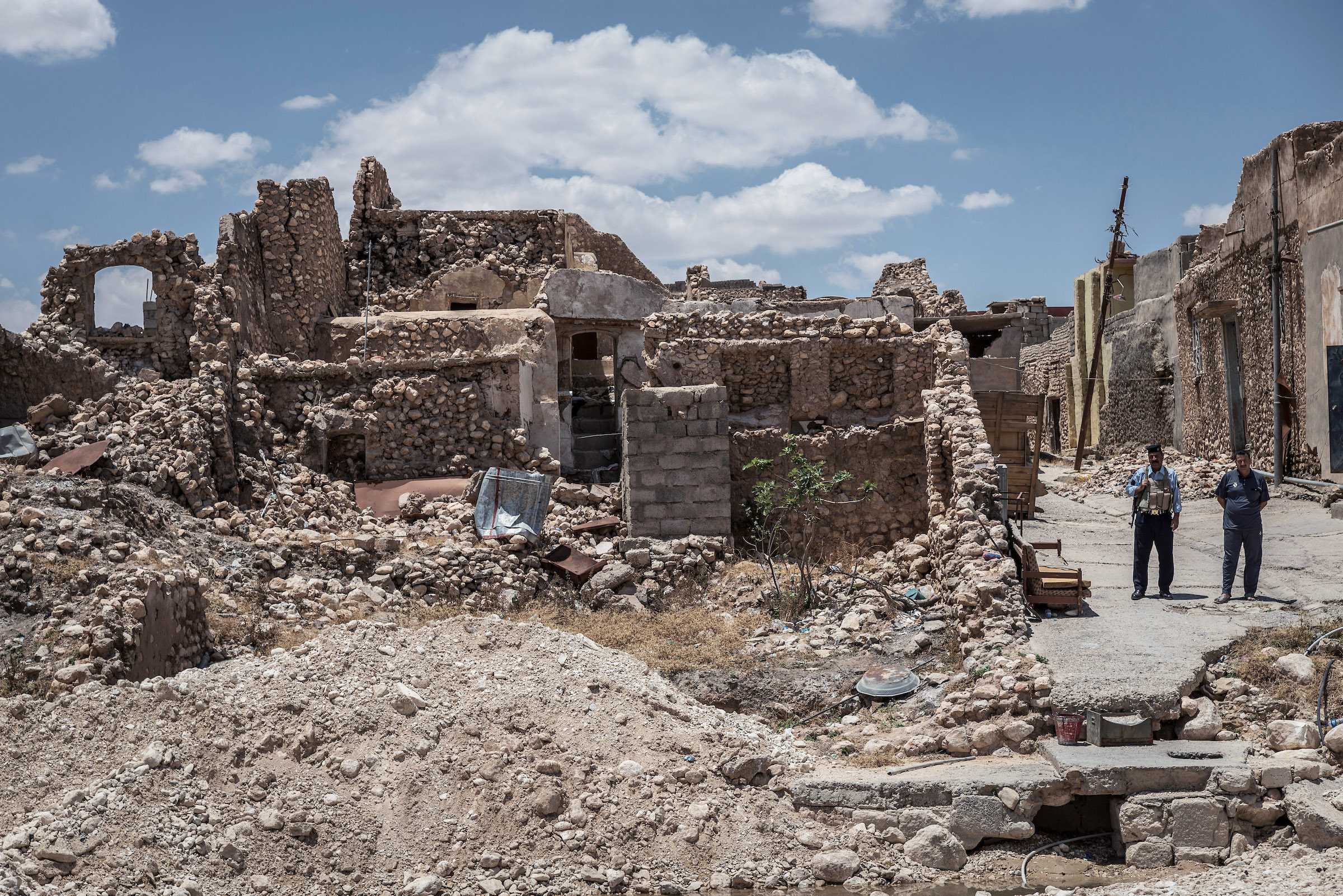Seven years since the Sinjar massacre, we hear from returnees on what it means to rebuild and restore dignity.
Seven years on: Rebuilding Sinjar, restoring dignity
August 3, 2021
Sinjar, as viewed from the town's Primary Healthcare Centre, which was rehabilitated by UNDP Iraq's flagship programme, the Funding Facility for Stabilization. Photo: UNDP Iraq
Huddled around a 100km-long mountain range in Northern Iraq, Sinjar was once known for its rich cultural, religious and ethnic diversity. The district's main city also called Sinjar, and surrounding areas were home to over 400,000 people. This included most of the world's Yazidi population.
However, on this day, seven years ago, the Islamic State in Iraq and the Levant (ISIL) launched a devastating attack on Sinjar. A gruesome act that will be forever deeply engrained in the city's memory. The Yazidi community was subjected to mass murders, sexual abuse, abduction, torture, forced conversions, and enslavement of thousands, particularly of women and girls. This massacre was later recognized by the United Nations as a genocide against the Yazidis.
Devastation in Sinjar after the ISIL conflict. Photo: UNDP Iraq
Today, over 118,000 people have returned home to Sinjar. On the seventh anniversary of the massacre, we hear from the people of Sinjar on what it means to build back their lives.
Dawood Sulaiman Al Bashkani, 41
Religious leader based in Tal Banat
"We need to re-establish the trust between people who are returning. This requires for all of us to work together and ensure all services and infrastructure rebuilt serves them equally."
Samira, 22
Resident of Sinjar city
"Yazidi women have faced so much trauma. We need more support for us to recover fully from the past. I could not complete my education because of the conflict. Now that my family and I have returned, we are looking for ways to skill ourselves to work and generate income for the household.”
Head of Agriculture Department Sharaf Nayef Rashko while training farmers from Sinjar on sustainable agriculture practices. Photo: UNDP Iraq
Sharaf Nayef Rashko, 52
Head of Agriculture Department
"Out of the 900 farmers in Sinjar city, only 40 have returned. For us to create a stable environment for people to return, we need to support them to cultivate their land and regenerate their livelihoods." He went on to say that Yazidis in Sinjar need full support for them to feel secure enough to return in a dignified manner.
Hasan Alyas, 39
Resident of Tal Banat
"When I returned, I came home to a destroyed house and farmland. It has taken my family a lot of courage to return home and attempt to rebuild our lives. Many of the others are unwilling to return because they fear the same thing will happen again. This year I started cultivating my land. I hope this motivates my neighbors to return home.”
Before and after the transformation of the Sinjar Municipality building which was rehabilitated by UNDP. Photo: UNDP Iraq
Since 2016, through the Funding Facility for Stabilization (FFS), UNDP has been supporting the people of Sinjar through rehabilitation of essential infrastructure and services, along with providing short- and medium-term livelihoods opportunities. To date, the programme has rebuilt three electricity networks, four water systems, two police stations, four health care centers, 14 schools and 165 homes. In addition, FFS has provided employment opportunities to over 580 people in the region, renewing hope and helping them regain their dignity.
For the families that choose to return, rebuilding their lives has brought immense challenges. Many have little to sustain themselves as their savings run dry, homes remain torn down, and livelihoods destroyed. On the other hand, half a million remain displaced. To support the people of Sinjar, rebuild sustainably, continuous support from the Government of Iraq and the international community is required. This is needed to restore infrastructure, services, and livelihoods while also re-establish trust and safety.
On this day and every day, UNDP stands in solidarity and remembers the victims of the devastating Sinjar massacre. Stabilization efforts must continue. UNDP reiterates its commitment to support the people of Sinjar and all communities in Iraq rebuild their lives with dignity after the ISIL conflict.

 Locations
Locations









